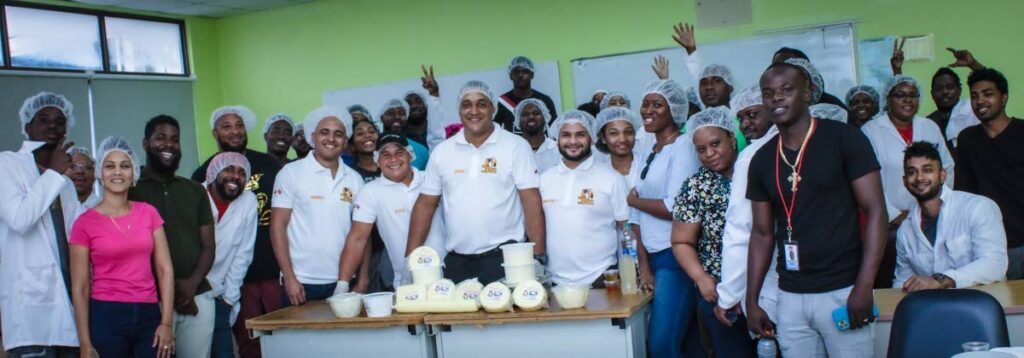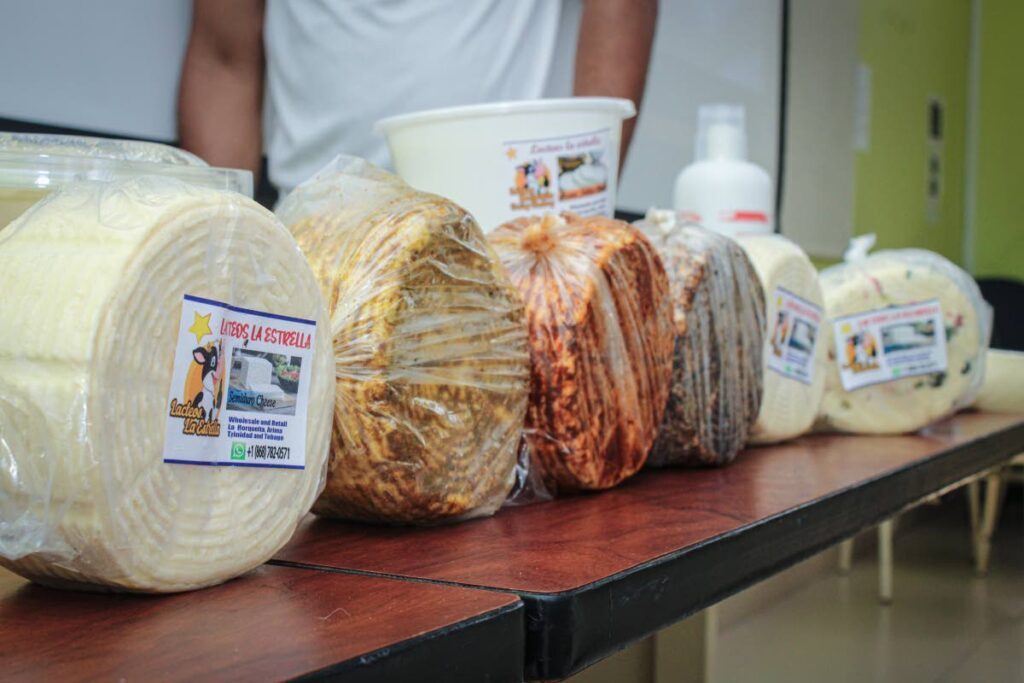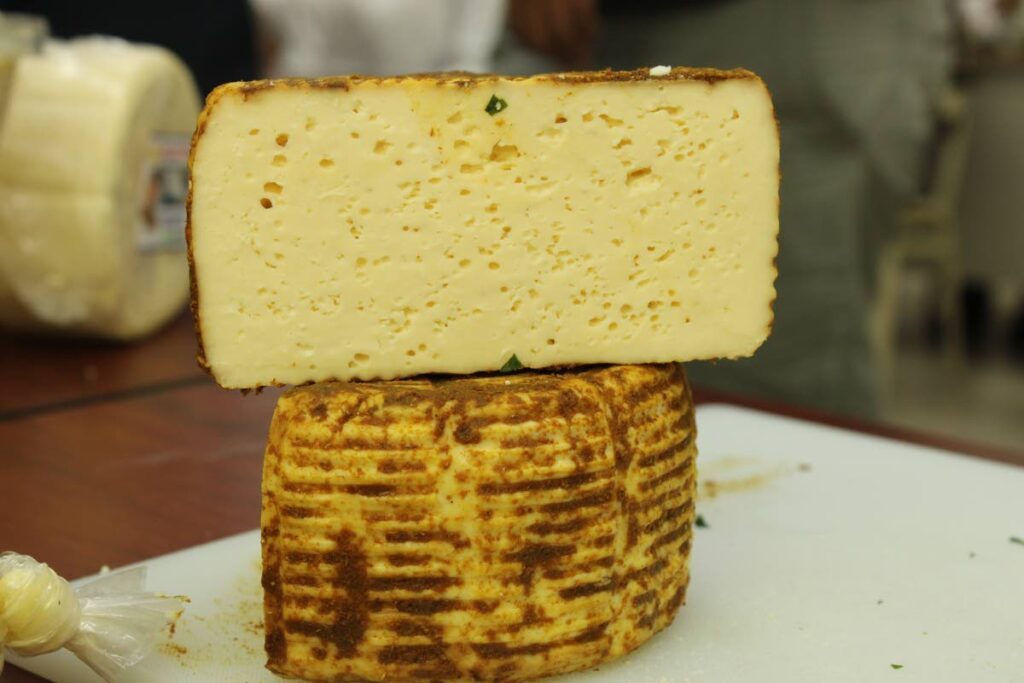White cheese, a locally produced alternative

About 200 students from the Youth Agricultural Homestead Programme (YAHP) under the Ministry of Youth Development and National Service, participated in a white-cheese production course as part of their training in agricultural products.
The course was run on November 25-26 at the University of TT (UTT) Centeno campus, by Venezuelan representatives of the Lácteos La Estrella Dairy factory, who promoted the production of 25 types of white cheese in TT.
Carla Marcelle-Boyce, instructor II UTT, said its Biosciences, Agriculture and Food Technology Unit (BAFT) has been contracted to deliver the certificate programme in agriculture and agro-processing technologies (CAAT) to students enrolled in YAHP. She said as part of the CAAT curriculum this semester, students enrolled in the agro-commodity utilisation course.
"This course is designed to give the student a definition of the value-added concept of food through the introduction of basic principles involved in the transition from primary to secondary and tertiary-level products utilising agricultural commodities, namely fruits and vegetables, root crops, dairy and meat."

This course teaches students introductory theory and gives them practical experience in using different preservation methods and the associated technologies for processing several major food items.
Over two days, Lacteos La Estrella Dairy gave a cheese-making demonstration to the students.
"Students were exposed to different cheese-making techniques and technologies, utilising milk from the cows from the UTT ECIAF (Eastern Caribbean Institute of Agriculture and Forestry) farms located at Centeno.
"The demonstration covered the manufacture of different types of cheeses such as ricotta, mozzarella, telita, semi-hard cheese and palmy zulia cheese, thus allowing the students to gain first-hand practical experience to complement the theory covered during the semester."
As an added bonus, Lacteos La Estrella Dairy provided cheese from its extensive cheese line for sampling.
Javier Inestroza, owner of Lacteos La Estrella Dairy, said his team has had experience in making these types of cheese since they were born.
“We come from working families in the Venezuelan countryside. We all have complete knowledge of the process of making the types of cheese and how to generate good production with benefits for everyone.”
Inestroza said in TT they started cheese production five years ago.
He said it is a joint undertaking with local milk producers who supply them with around 2,000 litres of milk per week.
“When the milk is received, it is processed and completely pasteurised and then divided into two sourdoughs. The first dough is for the mozzarella pasta, from which we obtain the sourdough for mozzarella cheeses and all its variety.

"The second dough is natural white cheddar. Known as semi-hard white cheese, and there you get another great variety of matured cheeses with different flavours according to the taste of the consumer.”
Through this process, it is possible to obtain 25 different types of cheese.
“Our purpose is to reach every corner of the country and market. That is why we welcome every invitation we receive to teach courses on the production of white cheeses. We want people in TT to have other business opportunities and nothing better with local production.”
Inestroza said the most important thing about this entire process is that the products are 100 per cent natural and chemical-free.
Venezuela is, according to information from the specialised newsletter Latinometrics, the second Latin American cheese-producing country, surpassed only by Argentina, and one of the 25 most important in the world. The balance sheets of this firm are supported by the information provided by the Food and Agriculture Organization (FAO), of the United Nations, and the specialised monitor Our World in Data.
“We invite the local community to learn how to produce their own healthy and natural foods. White cheese has an infinite number of styles to taste and this promotes internal livestock production and why not become exporters of white cheese to other countries.”


Comments
"White cheese, a locally produced alternative"